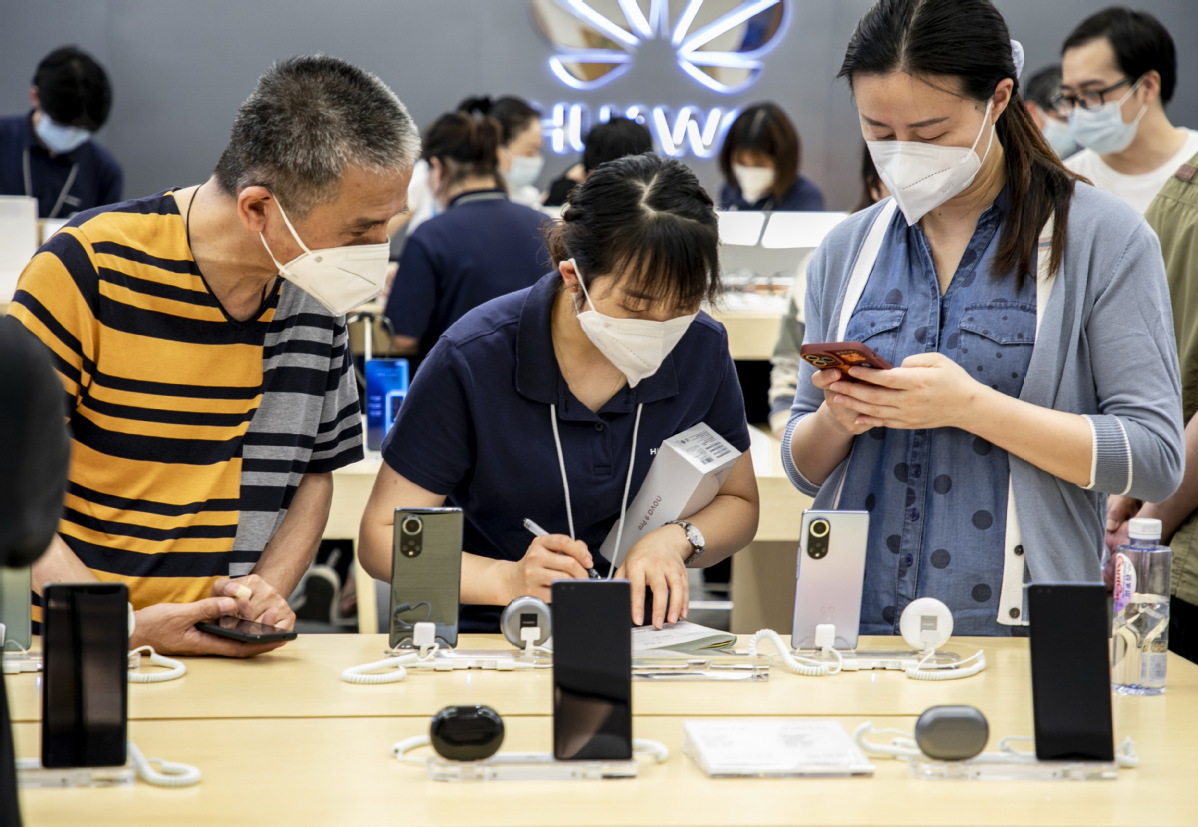Homegrown, high-quality goods prevail


Report: COVID-19 pandemic brings many changes to consumer behavior
Chinese consumers have become more conservative regarding buying nonessential goods and are paying more attention to the quality of purchased products, with homegrown brands gaining increased popularity among millennial and Generation Z consumers amid the COVID-19 pandemic, according to a report released by global consultancy PwC.
The report said 44 percent of Chinese consumers expect to spend more on groceries over the next six months, while a growing number of respondents will reduce their expenditure on nonessential consumption in fashion, health and beauty products, as well as consumer electronics.
Chinese brands have become more appealing to local consumers, and about 45 percent of respondents said they are more inclined to purchase domestic brands, up 10 percent from last year, the survey noted. They are willing to pay more for domestically produced or sourced products due to shorter delivery times, convenient purchase options and increasing quality.
Although inflation is still a major concern for Chinese consumers, they have shown a willingness to pay a price premium for products that exhibit certain desirable attributes. For instance, 50 percent of respondents said they would pay a higher-than-average price for a product with a traceable and transparent origin, while others are willing to do so for customized products (47 percent), or those made from recycled, sustainable or eco-friendly materials (45 percent).
The report also highlighted young buyers' increased social awareness and value-oriented consumption. They attach high importance to the degree of environmental, social and corporate governance (ESG) involvement exhibited by retailers, as well as the protection of personal data and privacy.
Charting a new path for sustainable growth is more important than ever for corporate strategy, said Jennifer Ye, PwC consumer markets leader for the Chinese mainland. She suggested that brands should "enhance their product innovation capabilities, increase R&D investment and continuously create new products that meet the actual needs of consumers".
China's consumer market is gradually recovering and gaining growth momentum, fueled by better containment of the pandemic and a slew of stimulus measures to spur consumption.
Retail sales of consumer goods, a significant indicator of the country's consumption strength, went up 5.4 percent year-on-year to 3.63 trillion yuan ($508.5 billion) in August, according to the National Bureau of Statistics. The growth had quickened from a 2.7 percent increase registered in July.
"The introduction of a raft of stimulus measures to spur consumption has played a significant role in stimulating consumers' purchasing appetite, promoting recovery of consumption and stabilizing economic performance," said Wang Yun, a researcher with the Academy of Macroeconomic Research.
The pandemic has also altered consumer shopping behavior, promoting stay-at-home recreational activities such as higher usage of virtual reality equipment for entertainment purposes and purchasing products in the metaverse.
The report said 36 percent of the surveyed Chinese consumers said they used VR headsets to play games or watch movies and TV shows over the last six months, compared with 16 percent globally, while 23 percent used the devices to shop. VR headsets are most favored by China's Gen Z consumers — those born between the mid-1990s and the early 2010s.
Rather than replacing physical retail outlets, the metaverse is likely to incrementally reshape the strategies and physical operations of retailers to create a futuristic marketplace that can better serve consumers' real and virtual needs, the report added, although it noted that government regulation would be important, given the still-uncharted nature of the technology.
The survey interviewed more than 500 Chinese consumers from 52 cities in March. The respondents were 18 and above and only those who had shopped online at least once in the previous year were selected.
The metaverse marketplace, though still in its infancy, can offer novel opportunities to brands in much the same way that e-commerce has revolutionized operation models, Ye said, adding that, as technological advances gather pace, merchants should be prepared for rapid transformation, including upgrading both online and offline points of shopping contact to stay relevant to consumers.
She also suggested that companies take advantage of the creative opportunities posed by such high-potential, malleable technology.
"Retailers should look to enrich customer experience through the development of online communities in the metaverse where VR avatars can come together and discuss shared interests."




































